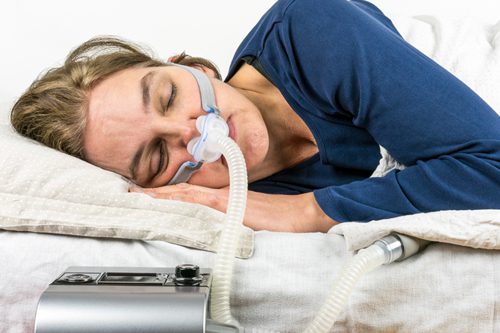
Does your bed partner snore so loudly during sleep but still wake up and complain of fatigue when they enjoy a full night’s sleep? Do you notice a pattern that involves sudden stops in breathing, and then the breathing continues again? Your partner could be living with Koreatown sleep apnea, characterized by loud snores, headaches, and feeling sleepy during the day. There are no exact causes of any form of sleep apnea, but several factors may contribute to the development of sleep apnea. The discussion below will focus on some risk factors.
Obesity
Carrying excess weight increases your risk for sleep apnea, especially obstructive sleep apnea. Fat deposits around your neck and palate may constrict your airway, making it smaller and tighter. As a result, your airways close when you sleep, leading to loud snores associated with sleep apnea. However, it does not mean every overweight individual has obstructive sleep apnea. Even thin people can develop obstructive sleep apnea.
Family History of Sleep Apnea
Does a medical review of your family reveal a history of sleep apnea? You will likely develop sleep apnea if a family member already has the condition. Genetics may make it possible to inherit facial characteristics and the shape of your airways in a way that puts you at risk for developing any sleep apnea.
Alcohol Consumption and Smoking
Smoking increases your risk of developing obstructive sleep apnea higher than if you are not smoking. As you smoke, your upper airways tend to develop an inflammation that affects your breathing and how your brain sends signals to muscles controlling breathing. Also, drinking alcohol may cause an increase in the relaxation of muscles in your throat and mouth tissue. As a result, your risk of developing obstructive sleep apnea increases.
Chronic Nasal Injection
You have an increased risk of developing sleep apnea if you have persistent nasal congestion, especially at night. Regardless of the cause of your nasal congestion, your airways may narrow and lead to obstructive sleep apnea.
High Blood Pressure
You may easily develop sleep apnea if hypertension and high blood pressure can also develop from untreated sleep apnea. Oxygen levels in your body drop when you are not breathing properly, forcing your brain to send signals to tighten blood vessels and increase oxygen flow. As a result of this constriction, you may develop high blood pressure even when your breathing is normal.
Large Tonsils
Large tonsils and small airways may lead to problems with breathing when you sleep at night. As a result, you may develop sleep apnea. Your child may easily develop obstructive sleep apnea because of large tonsils and adenoids, which may enlarge and block their airway, interfering with breathing during sleep.
Sleep apnea is a disruptive condition that may be potentially serious since it interferes with the quality of daily life and sleep. Sleep apnea can develop in three forms, with obstructive sleep apnea being the most common. While not everyone who snores has sleep apnea, you may have to seek an evaluation for complaints of loud snores during your sleep. Risk factors for developing sleep apnea include obesity, leading to fat deposits that block your airways and obstruct your breathing. Talk to your doctor about the different risk factors to help you determine if you are at risk.





